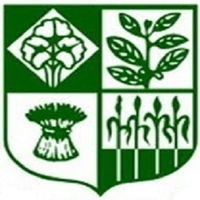ISLAMABAD: The Trading Corporation of Pakistan (TCP) has received $ 371 per ton offer from the parties for sugar import whose sealed bids were opened on August 18 and if the corporation accepts this offer it will cost landed price over Rs 100 per kg at Karachi, besides costing $ 111 million to the national exchequer, sources said. Another Rs 10 will add to it in the form of carriage from Karachi port to other parts of the country and imported commodity will be available at retail level at Rs 110 per kg. High cost of imported commodity will push up the rates of locally produced sugar and add to financial burden on the consumers. The domestic consumers will be the first victim as they are already feeling it difficult to digest high commodity prices. Fearing a gap of 0.4 million tons in last month of sugar year, the government had allowed the private sector to import sugar but it did not show any interest for it due to high import cost even in June 2020 when the international market was hovering around $ 335 per ton. Pakistan’s sugar consumption has gone up to 0.425 ton per month and it needs around 5.2 million tons sugar to meet its demand. However, Its producton last year had shrunk to 4.8 million tons, leaving a gap of 0.4 million tons in demand and supply. To plug this gap and after dismal response of the private sector, the government finally ordered TCP to issue international tender for import of 0.3 million tons sugar. TCP’s entry may keep stocks position better till beginning of the new crushing season, but one thing is for sure that it’s going to add more in the commodity price for the end consumers. The cane crushing season, as per Cane Act 1976, should start from mid of November every year, but usually it gets late. This year crushing may even get late by the first week of December as the sugar millers will not start crushing as a rebellious act to let the government down for taking action against the industry. Sugar millers seem dismayed over the recent developments wherein the industry was blamed of cartelization and jacking-up commodity prices to get undue benefit through price hike. Then a new twist came in the series of events when the federal government set- up a Sugar Commission in June this year to find out the factors, which resulted in irrationally higher prices of the commodity at the consumers level. The commission held a group of sugar millers (some of them politicians) responsible of creating artificial shortage through fake export and then jacking-up the prices through cartelization in the local market. Things went bad to worse when the government made the commission report public for holding accountable who so ever was responsible of fleecing the consumers. Prime Minister, Imran Khan, himself announced in a number of times publically to catch the sugar bulls by horns atany cost. He even did not care for his close political aide and prominent party leader, Jahangir Tareen, when he was named as one of the characters who as sugar commission report were behind the sugar crisis and subsequent price-hike of the commodity. The commission report was followed by filing of cases Federal Investtigation Agency (FIA) and Federal Board of Revenue (FBR) against Jahangir Tareen and other sugar millers labeled as ‘Mafia’. This segment is still not over as the sugar barrens are trying to get some relief from the courts by challenging the commission report. The industrialists argue that the government action against them was baseless and uncalled for. They claim the sugar high price was an international phenomenon and the government action did not help make things good. “Even today when sugar prices are at the highest level (Rs 100 per kg at retail level) in Pakistan these are lower than any country of the region. One can see a price comparison which shows higher sugar prices in India, Bangladesh, Iran and other regional countries”, claims a sugar miller who did not want to be named in the story.

